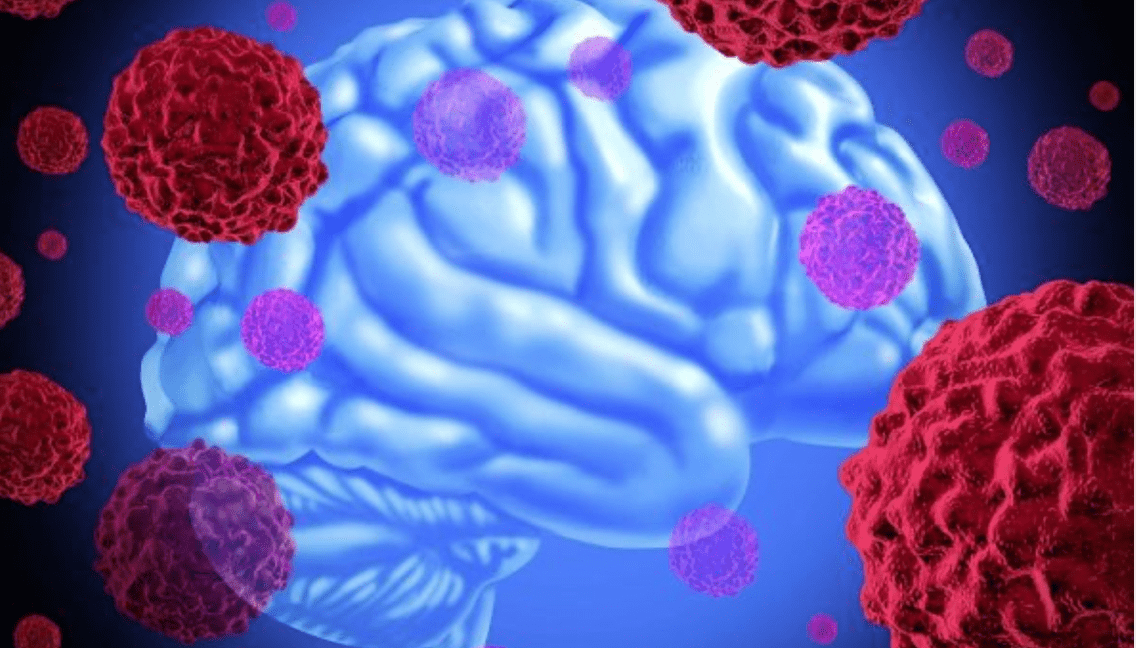-
 News
When glucose levels are low, chemotherapy ceases to affect cancer cells
News
When glucose levels are low, chemotherapy ceases to affect cancer cells
-
 News
Excessive treatment of prostate cancer in older men may reduce quality of life without increasing its duration
News
Excessive treatment of prostate cancer in older men may reduce quality of life without increasing its duration
-
 News
Brain cancer can be cured by viruses
News
Brain cancer can be cured by viruses
-
 News
Ways to reduce lymphatic pain in breast cancer have been found
News
Ways to reduce lymphatic pain in breast cancer have been found
-
 News
Scientists have turned bacteria into a powerful weapon against cancer
News
Scientists have turned bacteria into a powerful weapon against cancer
All news
Brain cancer treatment in Turkey
Despite how often this topic is mentioned in the modern film industry and the media, brain cancer is a rare disease.
It accounts for only 1.5% of the total number of malignant brain tumors.
Usually,
- Malignant astrocytomas,
- Glioblastomas,
- Some other tumors occur in the brain https://medtour.help/clinics/d-brain-tumor/
However, situations of occurrence of metastases of cancer of other organs in the brain are common.
Most often, these are metastases of
- Breast cancer,
- Rectal cancer,
- Lung cancer,
- Melanoma
Given the fact that metastases give different tumors, it is impossible to
distinguish the gender and age at which the occurrence of metastases is more likely.
MedTour patients recommend clinics for the treatment of brain cancer in Turkey:
I had prostate cancer and I decided to have a surgerv in Medipol clinic. I have heard about it from my friends to did the same surgery here. I was amazed about modern technology in this hospital! Doctors and nurses are super polite and educated. Everyone speaks english and is ready to help in every situation. My turkish surgeon was the best doctor, which I have ever met in my life. Results of the surgery are estounishing. I feel myself great and I am very thankful to MedTour for organizing my medical trip!
Frequently Asked Questions
The causes of this phenomenon are still unknown, and confirmed risk factors include:
- Past brain radiation exposure,
- Family history of brain tumors,
- Neurofibromatosis type 1 or 2,
- Bourneville disease,
- Hippel-Lindau disease,
- Lee-Fraumeni syndrome,
- Tuberous sclerosis,
- Basal cell nevus syndrome,
- Turco syndrome
Symptoms of brain cancer or brain metastases depend on which area is affected, but the most common are:
- Gratuitous fatigue,
- Weight loss,
- Double vision,
- Headache, at the height of which vomiting occurs,
- Memory impairment,
- Tremor of the limbs,
- Convulsions,
- Loss of visual fields,
- Visual or auditory hallucinations,
- Hearing loss
- Technical equipment. Unfortunately, there are no Da Vinci robots and linear accelerators with computer navigation in the CIS (for example, the Varian Edge and TrueBeamSTx linear accelerators), and in the case of treatment of this disease, such equipment is crucial.
- Consilium approach. The decision on the treatment plan is made jointly by a team of oncologists, neurosurgeons, neurologists and chemotherapists. Thus, in comparison with the treatment that is carried out exclusively by oncologists, the patient has a chance not only for the maximum possible survival, but also for minimal neurological defects.
- Relatively low cost of surgical treatment and cheaper chemo, targeted and immunotherapy than in domestic clinics.
The best clinics for this:
- Anadolu-a clinic certified by the American Johns Hopkins Clinic for the treatment of cancer,
- Medipol is a multidisciplinary clinic that also provides a high level of cancer treatment, does not accept children,
- Liv Hospital is a private clinic that provides good quality treatment and comfortable
conditions
They are located in Istanbul.
- Radiation therapy takes about 1.5 months,
- One course of chemotherapy takes 1-3 days,
- The operation and the stay in the clinic after the operation takes from a week to three,
- Rehabilitation takes from 1.5 months to 6 months, but there is no need to undergo it in Turkey, and it is not necessary in all situations
- The cost of treatment on a Cyber or Gamma knife is 6-8,000 dollars,
- The cost of the operation is up to $ 20,000
In all oncological diseases, the prognosis depends on the stage and histological type of formation.
- At the first stage of the disease, patients have a chance to live 5 or more years,
- With the second and with the right treatment, patients can live for 2 years or more,
- With the third and fourth, the survival rate is about a year
Professor Nezhat Akalan
- Head of the Department of Neurosurgery at the Medipol Clinic,
- He has more than 30 years of clinical experience,
- Uses intraoperative navigation,
- Applies neuroimplatns,
- Treats with the help of minimally invasive stereotactic techniques,
- Specializes in pediatric neurosurgery
Professor Merdan Fauda
- Associate Professor of the Faculty of Medicine Istinie,
Radiation oncologist at the Liv Hospital Clinic, - He studied stereotactic oncology at the University of North Carolina,
- Specializes in three-dimensional brachytherapy,
- 4 D radiation therapy,
- Stereotactic RT & IMRT
What is the diagnosis of brain cancer?
Diagnosis of brain cancer, like all other brain formations, is difficult because of the difficulty of accessing education and because of the existence of a large number of brain formations, it is difficult to make a differential diagnosis between them.
Basic diagnostic methods:
- Examination by a neurologist-neurological disorders, such as unsteadiness of gait, changes in the fundus or tremor of the hands, if there is no other reason for them, are a reason for conducting additional research methods,
- CT with intravenous contrast,
- MRI with intravenous contrast — used when it is necessary to determine the involvement of blood vessels in the tumor process,
Biopsy-performed in the case of primary diagnosis. In cases of suspected metastatic process, it is also desirable, since the histological properties of metastases may differ from the characteristics of the main tumor, but if taking a biopsy is associated with high risks, the diagnosis can be limited only to CT or MRI. - The material taken for the study is examined under a microscope, in addition, the most
important mutations and features of the tumor are studied. This is done to prescribe the right chemotherapy, immunotherapy, targeted and hormone therapy. - Oncomarkers — an indirect diagnostic method, used for evaluation in dynamics and is important for complex diagnostics.
What is the treatment of brain cancer in Turkey?
The main methods of treatment of brain cancer in Turkey:
- Stereotactic surgery. This is the destruction of the tumor using a linear accelerator. For surgery for brain cancer or brain metastases, the most modern devices are used — Gamma knife, Cyber knife, installations that are equipped with computer navigation and IMRT function, so as not to leave areas of the tumor and not to damage vital structures such as the visual nuclei, blood vessels of the brain or the respiratory center.
- If the removal of the tumor by radiosurgery is not possible (due to ingrowth into vital structures or due to the fact that vital structures may be damaged due to edema during treatment), an endoscopic operation is performed through the nasal passages. This is a more invasive procedure than linear accelerator treatment, but it is much safer than traditional craniotomy.
- In the case when radiosurgery is not possible, and endoscopically it is impossible to provide adequate access, it is necessary to resort to invasive surgery. It is safest if it is performed on a Da Vinci robot.
Sometimes in the brain, the visualized metastasis is not 1 to 2 distinct forms, but a large number in different places, but within the same area or lobe. In such a situation, it is necessary to give radiation not to the metastasis itself, but to a certain area of the brain. At the same time, the need for computer navigation and correction of the beam direction during irradiation becomes even more important. - Neurosurgical operations. Sometimes the removal of a tumor is impossible without the intersection of neurons and blood vessels of the brain. In order not to invalidate the patient, these structures are stitched according to neurosurgical principles.
- Rehabilitation — depending on the complexity of the operation, neurological defects may remain after treatment, which requires several weeks or several months of rehabilitation.
Depending on the type of formation, less often for cancer, more often for metastases:
- Systemic chemotherapy,
- Targeted therapy,
- Immunotherapy
Published:
Updated:


Information on this webpage verified by the medical expert






I want to share my experience with Liv Hospital, where I had a prostate removal surgery due to cancer. From the very beginning, everything was well-organized – the staff helped me with all arrangements, and the doctor explained everything in detail. The hospital itself is very modern and clean, which made me feel more comfortable.
The surgery went well, and I was surprised how fast I started recovering. Now, a few months later, I feel much better and my tests show good results. I’m really grateful to the doctors and nurses at Liv Hospital for their professionalism and care. If anyone is looking for high-quality prostate cancer treatment, I can definitely recommend this place.